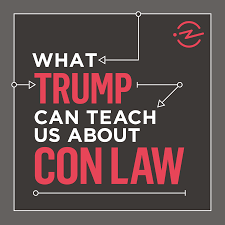Humans are inherently curious creatures. Whatever the reasoning or evolutionary purpose behind this, all people are essentially curious. With the return of my weekly podcasts, I wanted to give listeners podcasts I thought were enticing for curious minds and ones that answered questions that are often left unanswered. So grab some headphones and enjoy.
“About Race with Reni Eddo-Lodge”

Photo courtesy: Itunes
You can argue that Reni Eddo-Lodge knows one or two things about how to speak about complex situations, especially when they revolve around race relations and how they’ve been at an all-time low recently. The author of “Why I’m No Longer Talking to White People About Race,” Eddo-Lodge dissects racial matters from the viewpoints of politics, law enforcement and feminism. The podcast gives a further look at politics today — both globally and in her home country of Britain. Bringing in different voices each week, Eddo-Lodge takes her topics to a deep level of discussion by having an open conversation about things she thinks people are scared to address. She can be described as conscious, admitting how careful she has been in the past to use the term “people of color” rather than “black” when describing people who are not white. Previous episodes have included in-depth talks about what political blackness means to different generations. That episode, in particular, was inspired by the 2016 Kent University Student Union incident in which the university promoted Black History Month using former One Direction singer Zayn Malik and London Mayor Sadiq Khan. No matter the conversation — whether it’s how the black community has fragmented and rejected the notion of political blackness or about the revolution of the community’s cultural landscape — information is always summarized into a roughly 30-minute show, making it easy to grasp.

Photo courtesy: Itunes
“Caliphate,” a New York Times audio series about the Islamic State, is one of the most gripping yet sensational podcasts in the industry right now. The podcast has two voices: Rukmini Callimachi, a Times foreign correspondent, and Andy Mills, a Times reporter and journalist. The series is a 10-part podcast, with each part focusing on different set pieces. It details a heartbreaking story about young Yazidi girls who were sexually assaulted and enslaved by the Islamic State, an extensive interview with a former Canadian ISIS recruit and what life is like in Mosul, a city that has been recently liberated from the extremist group’s control. Overall, the three main narratives are delivered in unique ways, from studying the psychology of the organization — including what motivates them to execute mass killings and expand in rank — to its recruiting practices. The first half of the podcast focuses on the Canadian recruit, who comes from a well-to-do family, and what drove him to join one of the largest active terrorist organizations. Be prepared to get frustrated with how the story unfolds as well as with the unexpected twists and turns it takes. If you’re someone that gets bored with podcasts, this could be the podcast for you — it is in documentary form and told by a journalist who is uncovering stories for curious minds that have been untold for sometime. “Caliphate” is everything you could want and more, and the duo’s reporting brings listeners closer to the answers.
“Entry Level with Brooks Wheelan”

Photo courtesy: Itunes
There is no greater podcast that confidentially and comically details the journey that working class people have experienced at their entry level jobs than “Entry Level with Brooks Wheelan” does. This podcast is about entry-level jobs that suck. Each episode, Wheelan goes across the United States and interviews people about how they’ve made it to where they are today. Before going into podcasting, Wheelan worked through various stints that inspired this podcast, including illegally giving tours of a cave in Iowa in his Prius. I’m not into stand up comedy but still found the show entertaining and personal. His guests provide listeners with tips on how they went from an entry-level salary to a six-figure salary — and no, their advice doesn’t sound like some pyramid scheme. In one episode, a personal favorite, Wheelan brings on James Adomian to talk about doing odd jobs growing up. From being fired from the first Quiznos in Los Angeles to dropping fossils in a warehouse, Wheelan can relate to people who have experienced similar hardships in their various random jobs.
“What Trump Can Teach Us About Con Law”

Photo courtesy: Itunes
After scrolling through Twitter one day, Roman Mars read a tweet that talked about how hard teaching constitutional law in the age of Trump would be. This inspired a show that is now over a year old and is co-hosted by Mars and University of California law professor Elizabeth Joh, who provides facts regarding constitutional law. After recently enrolling in a constitutional law class, which focuses on the Supreme Court and the Constitution, I wondered how different the law would be under this presidency and how things have changed under Trump’s administration. The ultimate goal of the show is to reach curious-minded people, and the two hosts thoroughly detail Trump’s executive decisions and tie them back to the Constitution. Prior to recording, Joh scrolls through Twitter to find out what Trump has tweeted and how it relates to “200 years of the judicial branch interpreting and ruling on the Constitution.” She uses this information to teach Mars, who considers himself a student throughout the series, and to break down complex laws into simpler laws. This podcast is fact-based, well-presented and informative. An episode I’ve listened to recently — and one that you can put on your radar — is “War Powers,” in which the hosts discuss what the Constitution says about the president’s ability to wage war and how Congress is involved in that process. So, the president is the commander-in-chief of the military, but only Congress can wage war. And though many presidents have sent troops abroad, the question arises: What if the president sends troops to fight without congressional approval? Mars and Joh address this vital question and many more.






